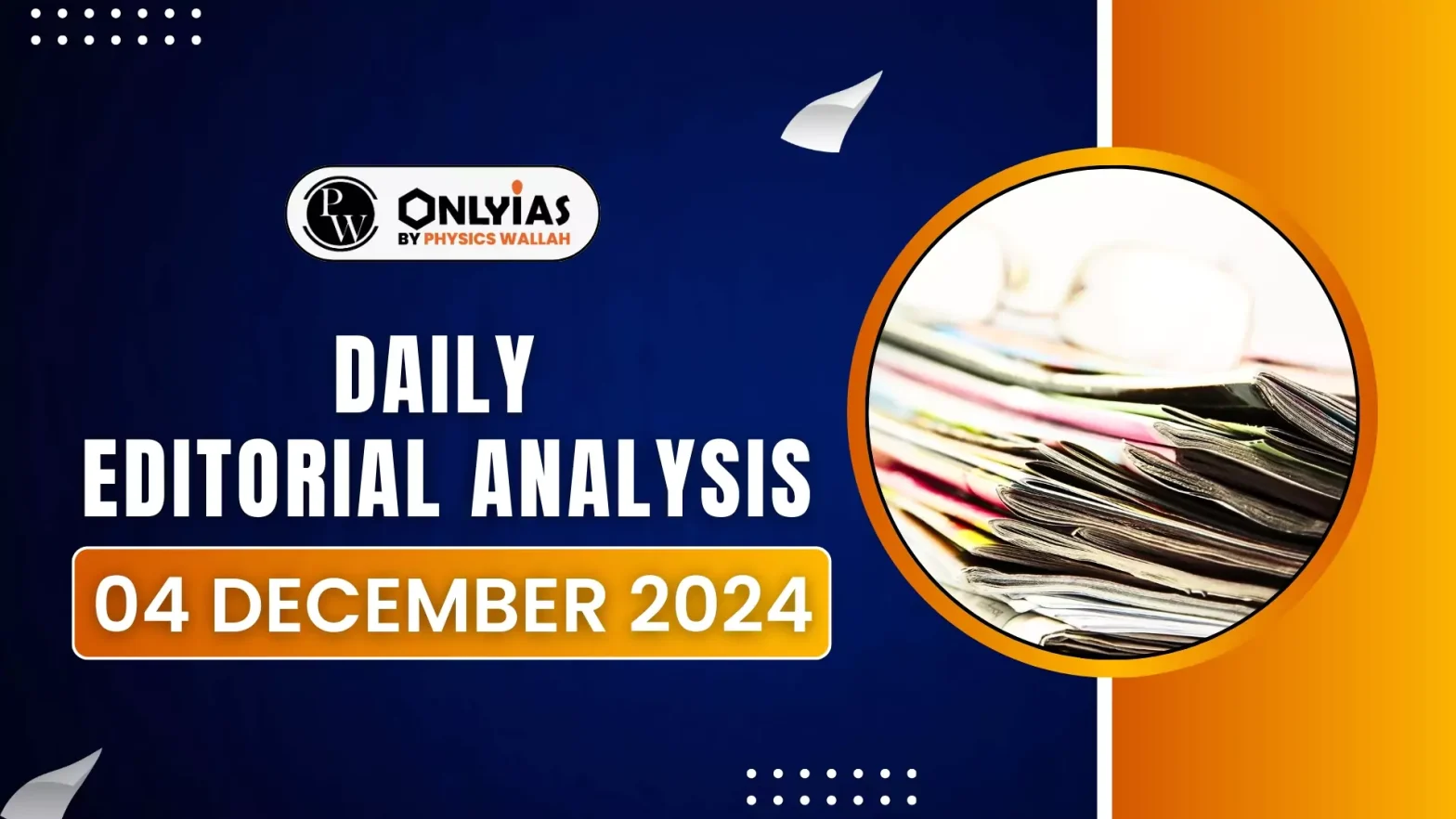Moravec’s paradox reveals that while AI excels in complex tasks, it struggles with environment-based tasks. This opens the door for Hybrid Agricultural Intelligence (HAI), which combines farmers’ expertise with AI to create sustainable solutions for India’s agricultural challenges.
An Overview of Agriculture in India
- Agriculture is a cornerstone of the Indian economy, contributing significantly to both GDP and employment.
- As of the Economic Survey’s provisional estimate for 2023-24, agriculture contributes 18.2% to India’s GDP and provides livelihoods to 42.3% of its 1.4 billion people.
- India has a vast agricultural area, covering 219.16 million hectares in 2021-22, highlighting the scale of farming activity in the country.
- Indian agriculture is primarily characterized by small landholdings, with over 80% of the agricultural community being smallholder farmers.
- Indian agriculture is also highly diverse, with varying climatic conditions, soil types, and water availability across regions, influencing farming practices.
- The sector, however, has faced challenges like soil degradation, water scarcity, and shifting climate patterns that threaten crop yields and food security.
- Despite these challenges, Indian agriculture remains resilient, thanks to the adaptive strategies of its farmers and the importance of sustainable farming practices.
Enroll now for UPSC Online Course
ITK: Methods and Importance
- Indigenous Technology Knowledge (ITK) encompasses a vast array of farming techniques developed over centuries by Indian farmers.
- These methods are deeply rooted in local ecological understanding and are essential for managing diverse agricultural landscapes. Some key ITK methods include:
- Crop Rotation and Poly-cropping: These practices are designed to maintain soil health and reduce dependency on chemical fertilizers.
- Water Management: Techniques like rainwater harvesting and groundwater recharge have helped manage water resources efficiently.
- Soil Health: Farmers use organic fertilizers, composting, and mulching to improve soil fertility.
- The importance of ITK lies in its ecological sustainability, low-cost nature, and adaptability to local environmental conditions.
- ITK has helped farmers thrive despite challenges such as limited resources and erratic weather patterns.
Government Measures to Preserve ITK
- The Indian Council of Agricultural Research (ICAR) has been instrumental in documenting ITK through initiatives like the National Agricultural Technology Programme, which led to the creation of the Inventory of ITK in Agriculture.
- This inventory serves as a valuable resource for researchers and farmers alike, enabling the broader use of ITK across the country.
- The Protection of Plant Varieties and Farmers’ Rights Act (PPVFRA) was established to safeguard farmers’ contributions to plant breeding and the conservation of traditional crop varieties.
- Government initiatives like the Genome Saviour Awards have recognized the vital role farmers play in conserving indigenous seeds, which are crucial for maintaining biodiversity and resilience in Indian agriculture.
Use of Technology in Agriculture and Its Limitations
- Technology, particularly AI, machine learning, drones, and sensors, has revolutionized agriculture globally.
- These tools have significantly enhanced productivity, efficiency, and sustainability in developed nations.
- In India, however, the adoption of such technologies has been slower, mainly due to the small size of landholdings and the high cost of advanced technologies.
- AI applications in agriculture, such as precision farming, weather forecasting, and pest detection, offer immense potential for Indian farmers.
- The Saagu Baagu initiative in Telangana, which saw AI-based improvements in chilli farming, is a prime example of how AI can enhance yields and reduce input costs.
- However, the widespread adoption of such technologies is hindered by factors like financial constraints, lack of awareness, and resistance to change among farmers, particularly in rural areas.
- Additionally, many AI tools are designed for large-scale farming operations, making them less suitable for the smallholder context of Indian agriculture.
Hybrid Agricultural Intelligence (Way Forward)
The future of Indian agriculture lies in combining traditional farming knowledge (ITK) with cutting-edge AI technologies. This concept holds the potential to create sustainable, adaptive farming practices that address the unique challenges faced by Indian farmers.
- Creating Collaborative Platforms for Knowledge Exchange
- To foster innovation, collaborative platforms should be developed where farmers can actively share their indigenous knowledge with AI developers and researchers.
- Platforms like Kisan-e-Mitra, Bhashini, and Sarvam can play a pivotal role in this process by supporting multilingual communication and making advanced farming insights accessible to a wider audience.
- Pilot Projects for Testing the Hybrid Approach
- To ensure effective integration of ITK and AI, pilot projects should be launched in diverse agricultural regions across India.
- These projects will assess AI’s impact on farming efficiency, yields, income, and sustainability.
- By evaluating different contexts, regions, and crops, these pilots can identify challenges like data accessibility and infrastructure limitations, enabling proactive solutions for smoother adoption.
- Equitable, Ethical, and Inclusive Partnerships
- These partnerships should prioritize the interests of smallholder farmers, ensuring that AI tools are affordable, accessible, and beneficial for their operations.
- Furthermore, ethical concerns such as data privacy, safeguarding farmers’ intellectual property, and the protection of national food security should be central to the development of these technologies.
- Affordable and Accessible AI Tools for Smallholder Farmers
- A key challenge in implementing HAI is making AI tools affordable and accessible to smallholder farmers, who often operate on limited budgets.
- To address this, the government and private sector should collaborate to provide low-cost solutions, such as government-subsidized AI services, training programs, and community-based knowledge-sharing platforms.
Check Out UPSC Modules From PW Store
Conclusion
Ensuring that these technologies are inclusive, equitable, and ethical will be key to the success of HAI in transforming Indian agriculture for the future. By fostering a symbiotic relationship between traditional knowledge and modern technology, HAI could lead to a more prosperous, sustainable, and resource-efficient agricultural sector in India.

